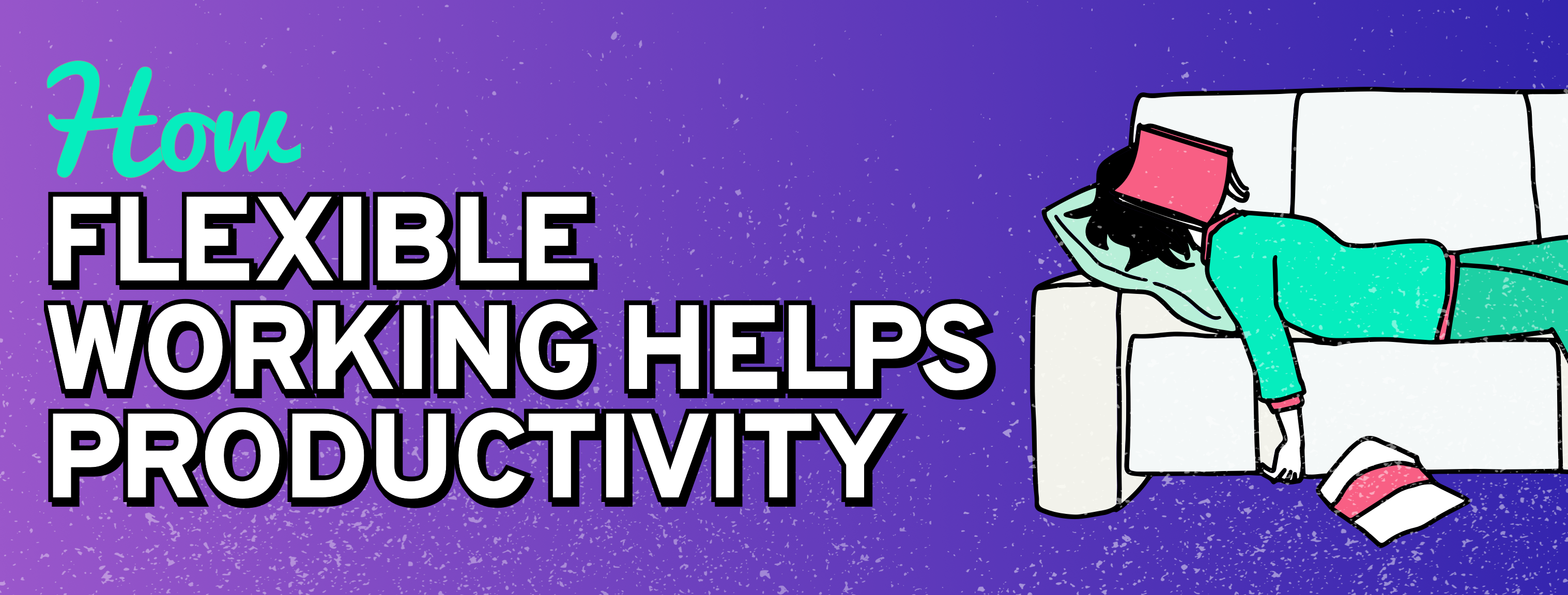How Flexible Working Helps Productivity
19th Jan 2023

Festival of Sleep Day is observed annually on January 3rd and created to help people relax but get back into work post the New Year / Christmas break.
Austin International is a market-leading recruitment powerhouse for top tech talent, powered by the passion of more than 200 people across 9 cities worldwide. You can check out their article on how flexible working boost productivity.
Monday morning hits, in this case, it was a Tuesday. The alarm has just gone off for the third time. Oh, how an extra hour in bed is much needed right now! But no… you need to be at your desk by 9 am. So you crawl out of bed with one eye still shut and attempt to get ready for the day.
It’s now 10 am, and all you’ve done so far is drink two cups of coffee and stare at your screen - blankly. Where did that first hour even go?! Staring at the screen blankly for an hour isn’t a great use of time. In addition, you may be familiar with something known as “the 3 pm slump”. The day may start full of energy and a whole list of things to do, but somewhere between lunchtime and the end of the day, your energy starts to fizzle. You’re having trouble focusing, and tiredness takes control of your body. The only thing that would suffice right now is a nap. But instead, you must power through.
How tiredness is linked to productivity
The problem is, your tiredness can negatively impact your productivity. Fatigue results in slower reactions, reduced ability to process information, memory lapses, absent-mindedness, decreased awareness, lack of attention, underestimation of risk, reduced coordination, just to name a few things. What’s shocking is that more than 69% of workers feel fatigued at work and 97% of fatigued workers have reduced cognitive performance!
It’s not just productivity that tiredness can affect, but also your safety. How many times have you stubbed your toe because you haven’t been fully aware of your surroundings or burnt your tongue on a hot drink due to absent-mindedness? These are just minor examples but fatigue can be dangerous and have serious consequences. Think about all those road signs you see saying “Tiredness can kill”. Research shows that 13% of workplace injuries can be attributed to fatigue, so you’re not just being less productive but also putting yourself at risk.
Those early mornings and the 3 pm slump can cause both employers and the business a lot of problems! So… what’s the solution?
Work where and when you’re most productive
The problem with the standard 9-5 hours is that employees don’t have the choice of whether they have to work or not. Regardless of their feelings, they must get the job done between those hours. But what if the power was in the employees' hands and they got to choose which hours they worked most productively?
At Austin International, we have something called the FlexAppeal. It’s pretty straightforward - you get to work where and when you’re most productive. By giving our people the choice, they can fit their work around their personal lives and well-being needs, and not the other way around. So if they want an extra hour in bed or a lunchtime nap, we won’t stop them. If anything, we encourage them to get the rest and put their health first. All we ask is you work your contracted hours a week, but the rest is up to you.
How does this work you might ask? How do you track the hours someone has worked? How can you trust someone has done their job? The answer is simple, if you give your people 100%, why would they not want to return 100% back? Our relationship is based on trust, empathy, collaboration, and encouragement.
How flexible working helps increase productivity
Here’s what some of our people think about flexible working and its impact on productivity.
“As I have flexible working hours, I can take care of personal things during the day without being worried about not being available. I work better during the evening hours so I can do some of my tasks after dinner. I think the flexible working hours have made me a much better consultant as I can manage everything accordingly.” - Sandrine, Senior Principal Recruitment Consultant, Germany.
“Flexible hours allow me to have a more productive day by enabling me to spread my work over a longer period and make better use of idle time. I vary my schedule based on what's on the agenda for the day and how I'm feeling. Going to the gym is a huge part of my daily routine that provides an absolutely necessary physical and mental boost for me. And, if the gym isn't your thing, this also holds true for the occasional power nap when necessary!” - Zack, Senior Principal Recruitment Consultant, US.
“I am most productive in the evening hours. Creative tasks in particular come easiest to me in the evening. At lunchtime, on the other hand, I often have a bit of a low, which is why I like to use this time for a long walk with my dog in the forest. The little time out makes me feel fitter again and I can work more concentrated and efficiently. If I have slept very badly during the night, I sometimes start working later if my schedule allows it. In return, I simply work a little longer in the evening. Since I am most productive in the evening anyway, I am fine with that and it works best for me.” - Lisa, Talent Sourcer, Germany.
As well as increasing productivity, flexible working hours host a whole load of benefits for employees and companies.